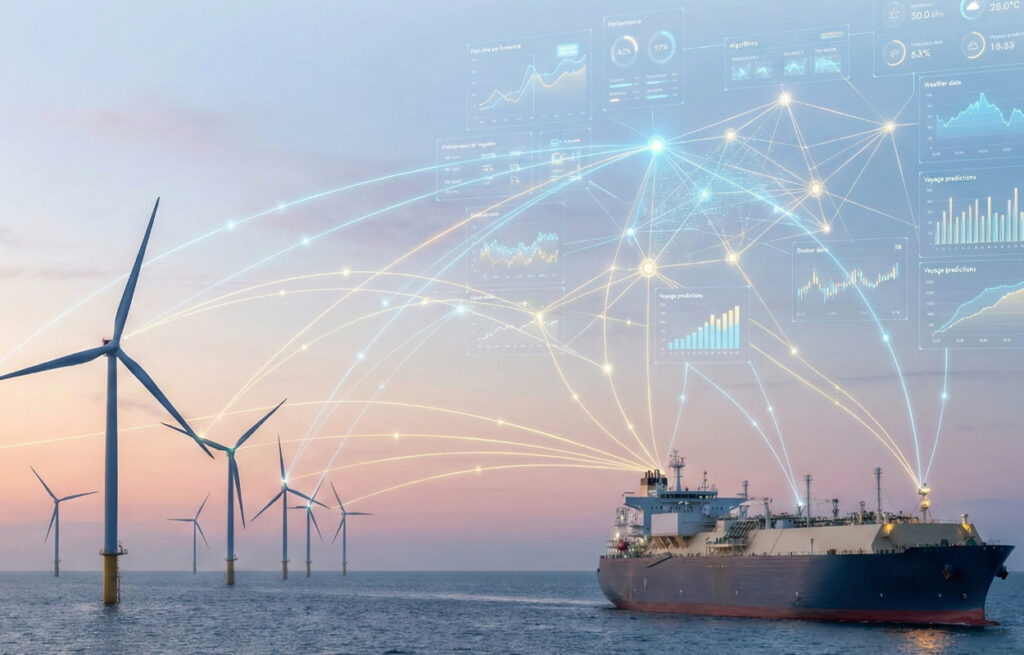As the energy landscape continues to evolve, companies like E.ON UK are adopting new technologies to enhance customer support and streamline their internal operations. We sat down with Claire Whitmore, Head of Digital Technology at E.ON UK, to learn more about the digital transformation taking place at one of the UK’s leading energy suppliers.
Driving Innovation
Claire describes her team as a vital supporting function, much like the behind-the-scenes crew of a theatre production.
“If you were to paraphrase Shakespeare’s ‘All the world’s a stage,’ we’re the set designers, sound engineers, special effects, and lighting crew — all the essential elements that make the performance possible. Our role is to provide everything needed so the business can be centre stage and engage with our customers.”
Claire’s team is driving the adoption of cutting-edge technologies across the business, exploring innovations like VR simulators that help customers visualise smart home upgrades, such as heat pumps and solar panels, and leveraging artificial intelligence (AI) to enhance the customer experience. This includes Whisper, an AI transcription tool that converts customer calls into text; Chattermill, an AI-powered ‘feedback aggregator’ which analyses sentiment across multiple touchpoints; and Billie, an interactive digital bill featuring pre-recorded video explanations from energy experts to address common billing queries before they arise.
In terms of greener solutions, E.ON Next, their customer-facing brand, is collaborating with Kuppa Solar Solutions to simplify and accelerate the adoption of solar power by using aerial photography, photogrammetry, and 3D height data to analyse homes and provide instant insights into costs and benefits for homeowners. This partnership will not only reduce electricity bills but also provide a means for households to generate their own power, decreasing reliance on the grid.
“Customer-facing industries are rapidly evolving in response to technological innovation. Customers now expect hyper-personalised messaging, always-on technology for 24/7 access, and seamless customer service without being passed between agents. In the energy sector, in particular, flexibility is key, with customers wanting more control over when, for example, their cars are charged and how they manage the energy they generate.”
The Growing Role of AI
Claire also leads E.ON’s UK AI First mission, driving innovation through AI to automate business processes, reduce risk, and develop tools like digital twins. Claire drives this innovation through hackathons, where participants are challenged to solve real-world business problems using artificial intelligence. The best ideas can secure funding and, eventually, be implemented across the business.
“One of the most exciting innovations to emerge from our hackathons came from our B2B engineering team, who were looking to free up their time to focus on long-term improvements rather than firefighting issues as they arose. Together, we developed a preventative maintenance tool powered by AI. Initially trialled with relatively poor-quality data, the tool still managed to predict trends with 86% accuracy. It works by identifying potential faults before they happen, shifting us from reactive problem-solving to proactive energy management. Trained to detect subtle anomalies in data—patterns too small for the human eye to catch—the AI flags early warning signs. For example, brief spikes in energy production for the same level of consumption could indicate impurities burning with the fuel.”
A Rewarding Career
When we ask Claire what she loves most about the energy industry, she shares her perspective on the career opportunities it offers:
“To me, if you’re a technologist looking for a good career, you’ve really got three options.
- You could join a tech giant like Microsoft, Infosys, or Amazon.
- Or, you could go the startup route, where you can explore the latest innovations across any industry.
- The third option is to work in an industry with significant investment and growth — industries where technology is a top priority. I’m not just talking about profit; I mean capital, investment, and expansion. That’s where tech is truly valued.
Take E.ON, for example — our focus is on sustainability, growth, and digitalisation. We’re not only using the latest technology and data solutions to simplify energy bills and improve our support for customers, we’re also leading the charge in making homes and businesses smarter with technologies like energy management systems and flexible battery storage, which can not only make our communities smarter and greener, but can ultimately make energy more affordable. AI is about more than just speed, it’s about creating smarter, more personalised experiences for our customers.”
“Ultimately, you want to be in an industry that’s changing. And right now, no industry is transforming like the energy sector.”
Looking for more insights?
Get exclusive insights from industry leaders, stay up-to-date with the latest news, and explore the cutting-edge tech shaping the sector by subscribing to our newsletter, Commodities Tech Insider.




